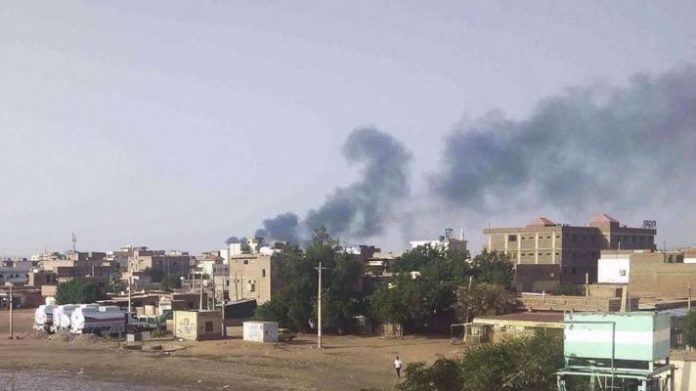In response to reports of “wanton killings” by “Arab” militia in Sudan’s West Darfur, supported by the Rapid Support Forces (RSF), the UN human rights office (OHCHR) on Saturday expressed concern and demanded “immediate action” to put an end to the killings.
According to OHCHR spokesperson Ravina Shamdasani, “The High Commissioner for Human Rights calls on the RSF leadership to immediately, unequivocally condemn and stop the killing of people fleeing El-Geneina, as well as other violence and hate speech against them on the basis of their ethnicity.”.
She stated that those accountable for the murders and other acts of violence must be held accountable.
Since mid-April, ethnic violence in Darfur has been largely caused by nomadic “Arab” groups allied with the RSF who are fighting Sudan’s national army forces for control of the country, forcing tens of thousands to flee into neighboring Chad.
The non-Arab Masalit men were targeted by militias, according to the UN rights office in Geneva, which cited “corroborating accounts” from witnesses.
On the road from El Geneina to the border between June 15 and 16, it was claimed that all but two of the 16 people it spoke with testified they had seen “summary executions” and the targeting of civilians.
The UN reported that “all those interviewed also spoke of seeing dead bodies scattered along the road — and the stench of decomposition.”.
Despite international efforts to reinstate a cease-fire meant to end 11 weeks of fighting and spread humanitarian aid throughout the impoverished African nation, fighting has persisted in Sudan.
On Saturday, reports of artillery fire, airstrikes, and gunfights rocking the capital and other locations indicated that the deadly conflict was still going on.
As the three-month-old power struggle between the Sudanese Armed Forces (SAR) and its rival, the Rapid Support Forces (RSF), led by army chief Abdel Fattah al-Burhan and his former deputy, RSF commander Mohamed Hamdan Daglo, continues, tensions have remained high in South Kordofan as well as in the greater capital area of Sudan, which includes Khartoum, Omdurman, and Khartoum North.
Following the expiration of the truce on Wednesday, fierce fighting broke out between the two opposing forces.
As the fighting continues, more and more residential areas are impacted, and the shortage of food, water, and medical supplies gets worse as electricity and running water are cut off in some Khartoum districts.
According to the Sudanese Doctors’ Union, the majority of the medical facilities in the major battle areas are still inoperable. The few hospitals that are still open are severely short on medical supplies, and they are having trouble getting fuel for their generators.
Both sides had accused one another of using the ceasefire to reposition military forces in preparation for attacks once it was over.
They attacked one another in Khartoum and the nearby cities of Omdurman and Khartoum North using heavy artillery, rocket launchers, missiles, drones, and other weapons.
Combat has also become more intense in Sudan’s vast western Darfur region, which borders Chad. According to estimates by local organizations, fighting has been ongoing for days in Al Fashir, the capital of the North Darfur state, as the two factions alternately controlled the eastern and western portions of the city and clashed in residential areas, killing more than 100 civilians.
Residents of the South Darfur state capital Nyala claimed they were caught in the crossfire. Battles, shelling, and artillery attacks were all reported.
Under the condition of anonymity, a medic told AFP that “citizens were killed, and wounded are arriving at the hospital.”.
The fighting in the war and the standoff must end, so both sides in the conflict must sit down and negotiate a settlement. Every war in the world should have a resolution in place of continuing in this manner, according to Yousif Widatallah Mohamed, a local of Khartoum.
The risk of a protracted conflict with regional implications is exacerbated by the fact that neither side appears willing to give ground.
According to the International Organization for Migration, over 150,000 people have crossed the border from Darfur into Chad.
In order to deal with this “unprecedented migratory crisis,” Prime Minister Saleh Kebzabo said on Saturday that Chad, which has already taken in more than 680,000 refugees, needs enormous financial and technical support.
The World Health Organization and the Central Committee of Sudanese Doctors have both cautioned that numerous regions of the country are at risk of pandemics like measles, malaria, and dengue fever as the country’s rainy season draws near.
In the meantime, the UN reported that aid had reached at least 2.8 million people, but organizations have complained of significant obstacles to their work, ranging from securing safe corridors to obtaining visas for foreign humanitarians.
More than half of Sudan’s population, or a record 25 million people, the UN estimates, needs humanitarian assistance and protection.













